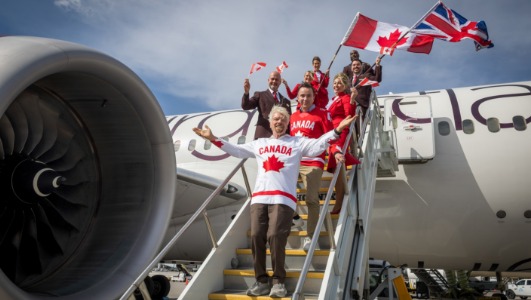A Guide To Recovery From Travelport

A new study is reporting that the majority of travellers are now ready to consider booking domestic and international trips, but only if airlines, airports, hotels and car rental companies collectively implement ten different safety measures throughout their journey, including fully flexible or refundable flight tickets.
Those are the findings from newly released, independent research by Travelport and are based on a survey of 5,000 travellers across the United States, United Kingdom, India, Australia and New Zealand, along with in-depth interviews with 29 leading travel suppliers.
In its study, Travelport found that at all parts of the travel journey, it is deemed critical to have social distancing rules, mandatory use of face masks, and ready access to sanitizing gel or wipes, face masks and gloves.
The study also revealed, however, that additional measures still need to be implemented by airlines, airports, hotels and car rental companies to fully restore consumer confidence.
Those additional measures included:
- Enhanced cleaning and/or disinfection
- Access to sanitizing gel/wipes, face masks and gloves
- Social distancing
- Temperature checks
- Mandatory wearing of face masks
- Fully flexible or refundable tickts
- Improved air filtration
- Contactless services
- Plexi-glass at check-in
- Managed boarding by row
Greg Webb, Travelport’s CEO said that: “Over the last few months, the travel industry has rolled out many initiatives to support a safe, healthy and responsible return for travel. This study highlights the criticality these measures are now playing in restoring traveler confidence. However, for the majority of travelers to return to the skies, the industry now needs to work together to not only ensure a wide array of safety measures are in place throughout the travel journey, but to collectively communicate these changes to travelers using a range of channels and merchandising technologies.”
On a country level, the study revealed demand for almost every safety measure is highest in India.
Demand in New Zealand, while still high, tended to be the lowest across the five countries assessed. When it comes to age groups, demand for robust safety measures was again high across all categories, however, it was highest among baby boomers and lowest among millennials.
Derek Sadubin, Managing Director, CAPA – Centre for Aviation, pointed out that: “Health and safety is understandably front of mind for travellers right now. The travel industry recognizes and respects this and, what’s encouraging, is that many suppliers, such as airlines, have already implemented the safety measures travelers say they need to book a domestic or international trip – but we still have a long way to go. Collaboration and communication are now key to restoring traveler confidence and securing a strong and responsible industry recovery.”
The safety measures currently being undertaken by more than 80 of the world’s largest airlines can be found in the recently launched Travelport Airline Health & Safety Tracker.
The tool, which is free of charge and available to both Travelport customers and the wider industry, is delivered to both online and offline travel agencies through the Travelport COVID-19 Smartpoint Plugin, Travelport’s API-based merchandising solution, Branded Fares Data File, and through the company’s COVID-19 Resource Hub at https://www.travelport.com/travel-industry-recovery .
Of note, Travelport’s Guide to Travel Recovery report also reveals that travellers are more likely to book through a travel agent than before the COVID-19 crisis, with one third (33%) of all travellers anticipating an increase in their use of travel agent services.
This trend was particularly evident among millennials (44%).
Overall, the two thirds (65%) who claimed this, said it’s because they feel travel agents are best placed to provide them with the latest travel safety information.
Go to www.travelport.com for more.
Tags:


